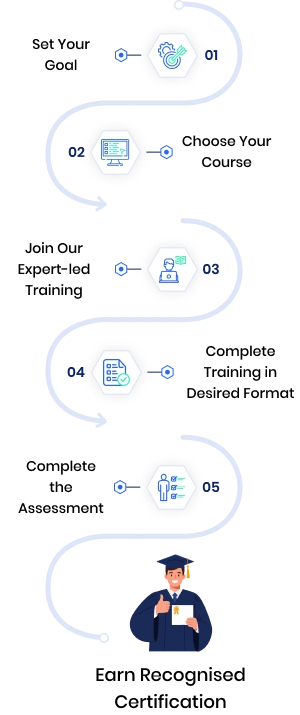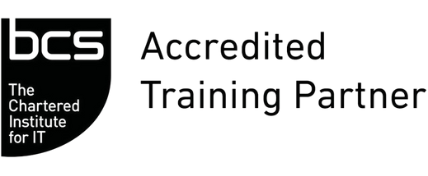Course Overview O v e r v i e w
- Course Overview
- Course Outline
- What’s Included
- What You’ll Learn
- Exam Details
BCS Foundation Certificate in Agile Overview
The BCS Foundation Certificate in Agile provides a strong foundation in Agile values, principles, and practices. It introduces learners to the mindset and frameworks that enable organisations to deliver products and services efficiently in dynamic environments. The course explores core Agile concepts, team roles, and iterative approaches to ensure adaptability and continuous improvement.
Formal training helps professionals understand how to apply Agile methods confidently. It improves communication, encourages collaboration, and strengthens delivery capabilities, making certified individuals valuable contributors to Agile teams.
At Training Deals, we offer Agile training that is practical, flexible, and designed for real-world impact. Our expert trainers bring industry experience and hands-on knowledge, ensuring every session is interactive and relevant. With competitive pricing and dedicated learner support, we help you build a strong Agile foundation.

BCS Foundation Certificate in Agile Outline
Module 1: Why Agile?
Linear Development Approach, Such as Waterfall and V-Model
Why Linear Development Approaches are Not Suitable?
Origins of Agile
Recognise the Agile Manifesto and Its Principles
How the Pillars of Scrum Underpin Agile Thinking
Module 2: Individuals and Their Interactions Over Processes and Tools
Ways That the Processes and Tools Can Undermine Agile Team Performance
Connection Between Team Motivation and Self-organising Autonomous Teams
Describe How Agile Teams Interact
Module 3: Working Software Over Comprehensive Documentation
How Working Software Means More than Just Code?
How Agile Can Be Applied to Non-software Products?
How the Seven Wastes of Lean (Software Development) Relates to Comprehensive Documentation?
Module 4: Customer Collaboration Over Contract Negotiation
Agile Team’s Relationship with its Customers
How Agile Teams Use Time Boxes and Iterations to Decide What Work to Commit To?
Product Owner Role and Their Responsibilities
Module 5: Responding to Change Over Following a Plan
How Regular Feedback Helps Agile Teams Respond to Change?
How Agile Teams Recognise When Change Is Underway?
Different Levels of Planning That Agile Teams Use
Risks of Detailed, Upfront Planning
Module 6: The Agile Mindset
Servant Leadership
How Agile Teams Are Cross-functional and Self-organising?
How the Pillars of Scrum Enable Continuous Improvement?
How Agile Teams Demonstrate Transparency?
Importance of Maximising the Amount of Work Not Done
How Agile Teams Maintain Sustainable Pace
Recall the Critical Factors in Creating Motivated Teams
Importance of Psychological Safety for High Performing Teams
Incremental and Iterative Delivery
Module 7: Roles in Agile Teams
Describe the Three Scrum Roles
Identify and Describe Commonly Used Non-Scrum Agile Roles
Module 8: Common Agile Practices
Practices of Team Leadership and Organisation in Agile
Use of Requirements
Practice of Estimation
Common Software Development Practices
Module 9: Agile in Practice
Describe the Agile Approaches
How the Following Practices Can Remove the Need to Adopt a Scaling Method?
Why the Following Metrics Are Indicators of Healthy Agile Teams?

What’s included in this BCS Foundation Certificate in Agile?
- Expert-led Training Sessions by Certified Instructors
- Comprehensive Course Materials
- BCS Foundation Certificate in Agile Exam
- Post-training Learner Support
What You’ll Learn in this Course
This course takes you from understanding Agile principles to applying practical frameworks for delivering value in dynamic environments. Each stage builds the knowledge and confidence needed to work effectively in Agile teams.
Learn the values and principles of Agile
Learn the fundamentals of Agile frameworks and methodologies
Learn how Agile roles and responsibilities support team collaboration
Learn iterative delivery techniques for adaptability and responsiveness
Learn to apply Agile practices to drive customer-focused outcomes
Learn how Agile supports continuous improvement and organisational change

BCS Foundation Certificate in Agile Exam Information
The BCS Foundation Certificate in Agile Exam assesses candidates’ understanding of Agile concepts, principles, and frameworks. The format of the exam is as follows:
Question Type: Multiple Choice
Total Questions: 40 Questions
Total Marks: 40 Marks
Pass Marks: 65%, or 26/40 Marks
Duration: 60 Minutes
Open Book/Closed Book: Closed book

Our Upcoming Batches
Request More Information

Corporate Training
Elevate your workforce with expert-led corporate training that enhances skills, boosts productivity, and aligns teams with your business goals.

Individuals Training
Unlock personal growth and sharpen professional skills with tailored training designed to build your confidence and career success.
Your Path to Professional Recognition
Our path is designed to guide you through each stage with clarity, support and practical learning, helping you achieve your goals with confidence.

Step Forward with Globally Recognised Certification
A recognised certification is more than a credential. It’s proof of your commitment to professional excellence, providing you with the credibility, confidence, and global reach to advance your career in exciting new directions.
Globally Certified Professionals Over Time
Career Growth
81%Certified professionals reported receiving a promotion after earning their certification.
Global Opportunities
89%Certified professionals experienced access to new career opportunities, including leadership roles and global positions.
Not able to find what you are looking for
Our experts will guide you to the right course from thousands worldwide: tailored to your goals.
Frequently Asked Questions
It is an entry-level certification introducing Agile principles, concepts, and frameworks to support effective delivery in modern project environments.
It helps professionals build a solid Agile foundation, improving adaptability, communication, and collaborative delivery skills across industries.
It is ideal for team members, business analysts, project managers, and professionals working in or transitioning to Agile environments.
Yes, Agile practices are widely adopted in IT, finance, healthcare, education, manufacturing, and more.
It equips learners with Agile principles to support iterative delivery, teamwork, and continuous improvement.
What Our Customers Say About Us
 Matthew Sullivan
HR Business Partner
Matthew Sullivan
HR Business Partner
Our HR team registered for the Change Management Foundation & Practitioner Training Course, and it couldn’t have been more valuable. The team gained practical frameworks to guide employees smoothly through transitions with confidence.
 Olivia Barrett
Operations Manager
Olivia Barrett
Operations Manager
Our operations staff completed the Lean Six Sigma Green Belt Training Course, and it has been transformative. We can now identify inefficiencies quickly, and the tools we learned are already improving performance across the team.
 Benjamin Foster
Product Manager
Benjamin Foster
Product Manager
Our product team took part in the Agile Project Management Foundation & Practitioner (AgilePM®) Training Course, and the difference is remarkable. We’re now more adaptive, collaborative, and efficient in managing change.
 Lucy Harper
IT Support Lead
Lucy Harper
IT Support Lead
Our IT support unit attended the ITIL® 4 Foundation Training Course, and the results have been impressive. Processes are smoother, collaboration has improved, and the team finally speaks a common language of service management.
 Edward Clarke
Programme Manager
Edward Clarke
Programme Manager
We joined the PMP® Certification Training Course as a leadership group, and it was outstanding. The trainer made every concept practical, and the exam preparation resources helped the whole team feel ready to tackle complex projects.
 Amelia Rhodes
Project Officer
Amelia Rhodes
Project Officer
Our project office completed the PRINCE2® Foundation & Practitioner Training Course, and it has brought real clarity to how we manage projects. The trainer’s examples were excellent, and the team now follows a structured approach with confidence.


























